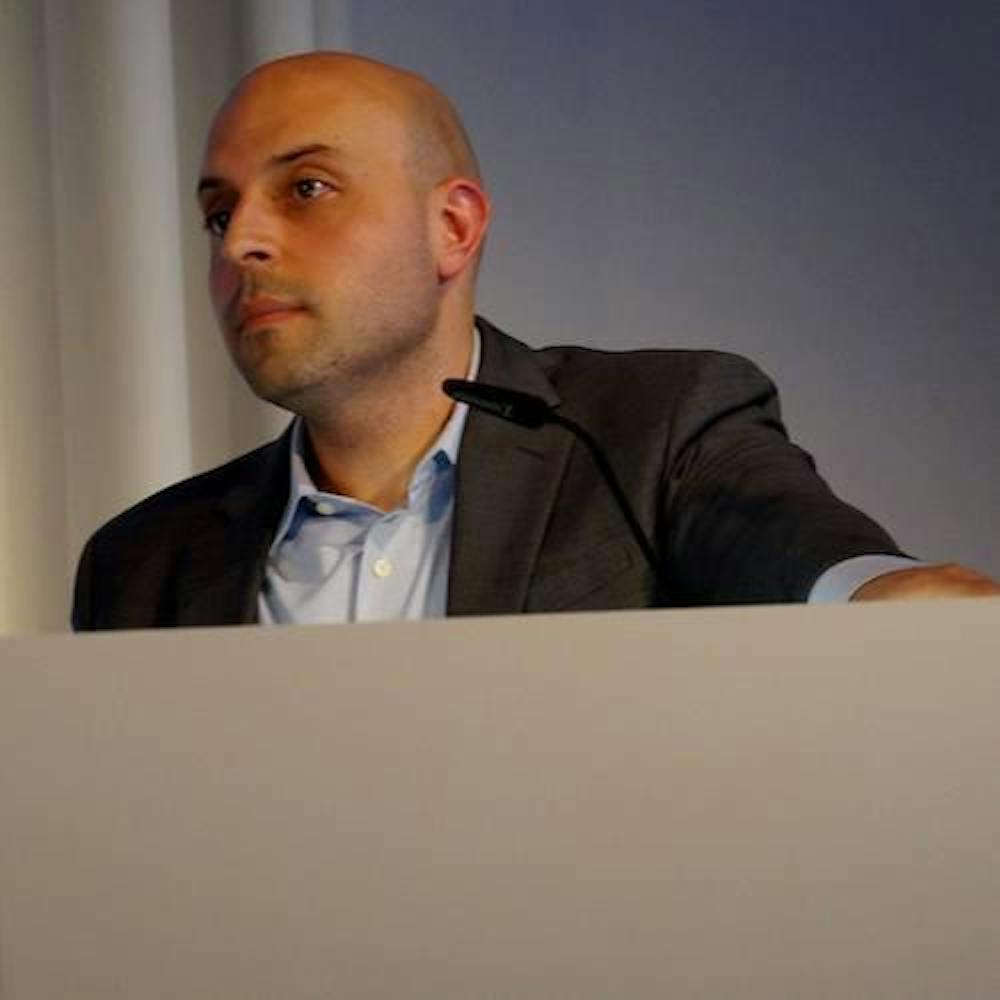“The students give me life. I am truly blessed to be here and do my work,” Associate Professor of Anthropology Sa’ed Atshan remarked when asked about his experience at Emory.
In January 2022, Emory University celebrated the tenure of Associate Professor of Anthropology Sa’ed Atshan, the first Palestinian professor to be tenured in University history. After his hiring in the fall of 2021, the University granted Atshan’s tenureship during his first semester as a professor.
“Even though it’s a little bit daunting, it’s also very exciting,” Atshan said. “I welcome and cherish the ability to add another layer of complexity to the issues that are near and dear to my heart.”

Atshan is a sociocultural anthropologist whose work focuses primarily on conflict studies, the Middle East and North Africa region (MENA) and global LGBTQ+ social movements. He has worked at top ranking colleges across the United States, including both Swarthmore College and University of California, Berkeley. Additionally he is a very successful author, having written “Queer Palestine and the Empire of Critique”and co written of “The Moral Triangle: Germans, Israelis, Palestinians.”
“We [anthropologists] are united by a shared mission to understand human beings and to understand how humans make meaning in their lives,” he said.
This dedication to humans extends beyond academics, as Atshan’s students, including Ben Levitt (22C), said they felt like he greatly respected and understood them.
“Professor Atshan is the most caring professor I have ever had,” Levitt said. “The level of care he has for his students, the amount he has invested not only in their academic growth but also [in their] personal growth is incredible.”
Atshan said he aims to understand his students in terms of both their backgrounds and their future goals.
“They have lives, they have hopes, they have dreams, they have fears, and I take an active interest in each and every one of my students,” Atshan said. “How can I as a professor and as a mentor support them in learning to love themselves and learning to accept themselves unconditionally, to overcome internalized racism, homophobia, sexism, classism, colonialism, ableism?”
To get to know his students better, Atshan requires that each student comes to office hours at least once throughout the semester.
“He sits there with a notebook and takes notes on you just so he can remember something about you and bring it up in the future,” Levitt said.
Levitt also noted Atshan’s emphasis on radical humanization in the classroom through discussions and community building that encourage critical thinking.
“The idea is that [for] everything you’re grappling with and learning about, he really wants you to humanize and think about every perspective,” Levitt said.
Atshan’s classes address political and humanitarian conflicts, which he recognized may be uncomfortable for some students. While Atshan said he works to create a space that welcomes people across the political and ideological spectrum, he ensures students are ideologically engaged and challenged.
“Everyone will be uncomfortable, and everyone will have to be comfortable with discomfort,” Atshan said. “Everyone will have to interrogate their assumptions and their world views and to think about counter-arguments and counter-counter-arguments.”
Corinne Phillips (25C) finds Atshan’s pedagogy effective for creating a space for his students to learn and grow.
“He really cares about everyone’s comfort and safety,” Phillips said. “When things get really tense or sometimes the subject matter is upsetting or disturbing in nature, he wants to make sure he checks in with everyone.”
Atshan’s tenure provides hope to students that Emory will take steps to increase the visibility of people from the MENA region on campus.
“While he is an amazing representation and role model to so many, this is just the beginning,” Phillips said. “I am excited for ways that the University can incorporate more diverse representation into faculty and that it can mirror the diversity of its students.”










